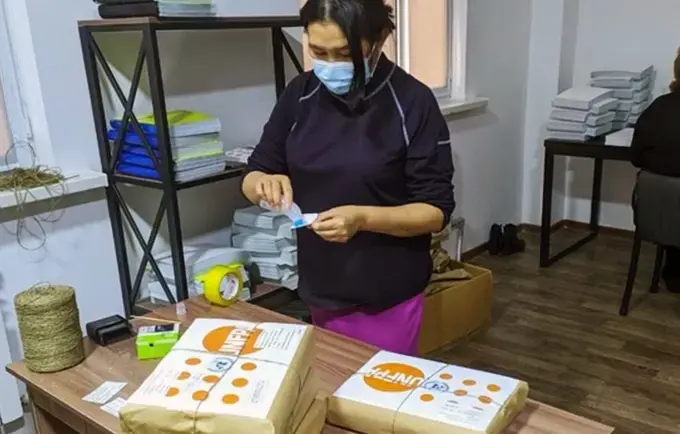CHISINAU, Moldova — A new National Programme on Sexual and Reproductive Health and Rights puts Moldova at the forefront of improving access to and quality of sexual and reproductive health services in the Eastern Europe and Central Asia region.
The programme, covering the period 2018–2022, was approved by the Government of the Republic of Moldova in May, following the development with UNFPA support of a regional sexual and reproductive health strategy. This makes Moldova one of the first countries in the region to adopt a national programme based on the European Sexual and Reproductive Health Action Plan, adopted by member states at the 66th session of the World Health Organization (WHO) Regional Committee for Europe.
“The Ministry of Health, Labour and Social Protection has committed itself to provide quality and affordable medical services to the population of Moldova. This programme is extremely important for ensuring that such services are provided equally to everyone,” said Svetlana Cebotari, Moldova’s Minister of Health, Labour and Social Protection.
Current needs for modern, client-centred family planning methods and sexual and reproductive health services remain largely unmet in Moldova, where only one-third of women of reproductive age use modern contraceptive methods, according to the Multiple Indicator Cluster Survey (2012). This rate is even lower among young people. Under the new programme, Moldova will strengthen the mechanism used for estimating the need for modern contraceptive methods as well as procurement and free distribution to vulnerable groups. The country will also enhance the quality of services by observing the right to free choice of contraception method, counselling, informed consent and other important aspects aligned with international standards and requirements.
An integral step towards sustainable development and universal health coverage
“Making sexual and reproductive health services available and accessible to everyone is the foundation for building universal health coverage,” said Dr. Nino Berdzuli, programme manager for sexual and reproductive, maternal and newborn health at the WHO Regional Office for Europe. “The close links with gender equality, education, employment, poverty eradication and other development outcomes also make realization of sexual and reproductive health and rights integral to achieving the global Sustainable Development Agenda 2030, and critical to accomplishing the goals of the National Development Strategy 2030 for Moldova.”
A budget of approximately USD $3 million over five years and a strong monitoring and evaluation framework have been approved for Moldova’s new National Programme, which will be coordinated by a multisectoral committee to be established later this year.
The programme aims to help fulfil the basic human right for all individuals, regardless of their age, ethnicity, residence or social or health status, to decide freely and responsibly on the number and spacing of children and the right to adequate education and information to enable such a decision. The programme’s cooperation and implementation mechanism is the result of a policy dialogue organized in Chisinau by the Ministry of Health, Labour and Social Protection in partnership with WHO and UNFPA.
Strong commitment to the ICPD Programme of Action
“Moldova’s endorsement of the National Programme demonstrates its commitment to the ICPD Programme of Action and the 2030 Development Agenda and reflects the country’s priorities in advancing sexual and reproductive health and rights,” said Dr. Tamar Khomasuridze, Sexual and Reproductive Health Adviser for UNFPA’s Eastern Europe and Central Asia Regional Office.
UNFPA’s regional knowledge-management resources and online platforms addressing sexual and reproductive health service guidelines and protocols, family planning and cervical-cancer prevention are already widely utilized in Moldova and will be further expanded and institutionalized within the framework of the new National Programme.
“Ensuring the universal access of women, men and young people to client-oriented, quality sexual and reproductive health services doesn’t just mean better health outcomes,” Khomasuridze said. “It also contributes to the realization of human rights and opportunities for social and economic development in each country, and across our entire region.”




